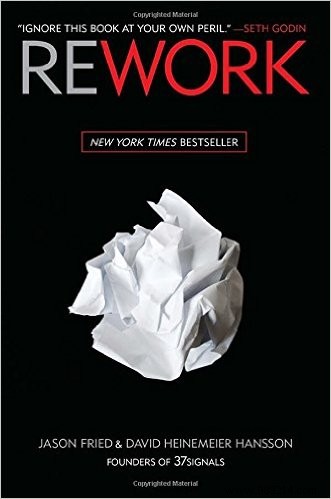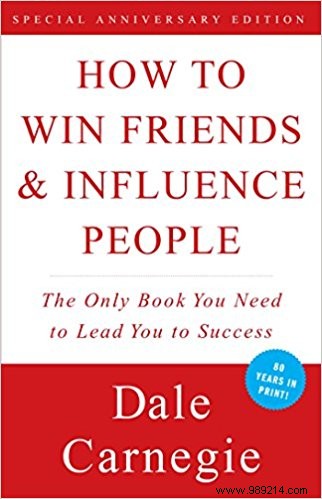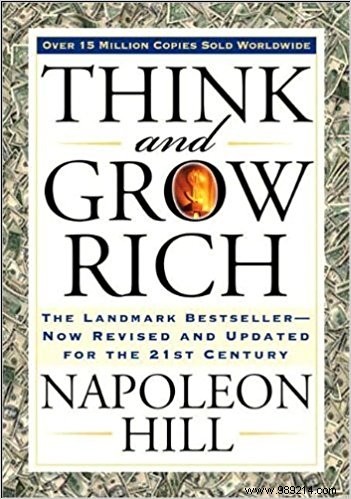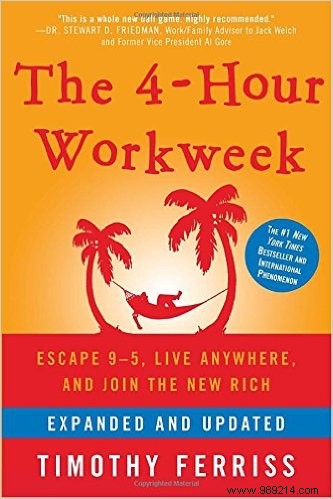What does it take to become a successful entrepreneur? A good idea? A great team? Or none of these answers?
ContentsThe Lean Startup – Eric RiesRedesign – Jason Fried and David Heinemeier HanssonHow to Win Friends and Influence People – Dale CarnegieThink and Grow Rich – Napoleon HillThe 4 Hour Workweek – Timothy FerrissSuccessful entrepreneurs all have one thing in common:reading. If you're looking for a good place to start, here are the 5 most recommended business books by today's entrepreneurs and the best advice you can learn from each of them.

Traditional management is about developing a strategy and overseeing the people who execute it.
The manager creates a plan, sets milestones and delegates. Startups, on the other hand, cannot predict their own future because they have no past. They don't know what their customers want and they don't know what are the best approaches to finding customers that can make the business sustainable.
Startups need a whole different approach, and that's where Eric Ries' book, The Lean Startup, comes in handy. The Lean Startup method helps companies develop sustainable business models by encouraging continued product creation while focusing on consumer feedback.
Ries, as an entrepreneur, bases the method on two important business concepts:lean manufacturing and agile development. And it's not just an experience product; it is actually backed up by several case studies that have been collected over the past few years.
In keeping with the Lean protocol, Ries' main advice is:don't waste time developing a product in the beginning. Instead, launch a basic model and see if it will sell. Otherwise, iterate, iterate and iterate again.

Rework is not your traditional business book. Instead of advising you to run your business the conventional way, it offers unorthodox strategies for communicating and making your products.
These tips come from people who know what they are talking about. Jason Fried is one of the original founders of 37signals. Its co-founder, David Heinemeier Hansson, is the creator of Ruby on Rails, the scaffolding for Twitter, Hulu, and thousands of other web services.
Fried and Hansson based Rework's lessons on their owning journey — from starting to scaling their business to the point where it's generating millions of dollars a year.
An important concept the duo highlight in Rework is that you actually need less than you think to start your own business – less understanding, less resources, and essentially less of everything.
Fried recommends adding value to your customers by knowing what not to sell. You don't need to offer all available features; instead focus on what you do well and get rid of the “nice to haves”. You will be surprised how it will transform your business.

You've probably heard the name Dale Carnegie before.
He was an American speaker and consultant in communication and motivation. He also happens to be known as the creator of the personal development genre – a title he earned by writing the bestselling How to Win Friends and Influence People .
Even today, Carnegie's book continues to fly off the shelves and it's actually not surprising. It's full of lively anecdotes featuring the likes of Abraham Lincoln and Theodore Roosevelt.
It's also very relatable. Carnegie offers plenty of common sense advice in his book. One of the most useful nuggets is this:never openly criticize people.
And it's not because you'll hurt people's feelings (although you might); it's actually more about being strategic and practical. Carnegie learned that when you criticize people, they will never change their behavior. To have a successful interaction, the book encourages you to empathize, forgive, and accept their flaws instead.

Industry magnate Andrew Carnegie asked journalist and adviser to President Franklin Roosevelt, Napoleon Hill, to investigate the methods of the 500 most successful people of his time. Hill talked to the world's richest men, top politicians, famous inventors, writers and captains of industry – and then wrote the book.
Among other things, Hill learned a lot about the importance of the business you keep. He hypothesized that you are the average of the five people you spend the most time with.
Naturally, it is important to surround yourself with smart, positive and supportive people. Hill even had a name for it:the Brain Trust.
Hill argued that if two or more people who work well together combine their skills, talents, specialized knowledge, experiences, relationships and all other resources and use them to achieve the same common goal, the result will be more than a simple sum of its parts:it is a surplus with which you can achieve things that you could never have achieved alone.

American entrepreneur and writer Tim Ferriss wrote this controversial classic based on his own experience of redesigning his life. After founding a company in 2001, he worked so hard that a burnout forced him to take a break.
He then took off to travel the world and was surprised to discover how he could run a profitable business from anywhere in the world – and with only a few hours of work per week. He wrote The 4 Hour Work Week and shared these secrets.
In the book, Ferriss advocates giving up the traditional 9-5 job as a modern office slave. Instead, it encourages living a life that focuses on fun while achieving big goals.
How exactly do you do that?
One of its critical aspects is learning to let go of things you don't really need to do, such as micromanaging. A great piece of advice from Ferriss's book is:don't keep your team.
Instead, get involved only in exceptional cases. By giving them more free reign, you not only empower them, but you also have more time for yourself to do the things you want to do.
As much as possible, try to read these books in a week. If you liked what you read but want to learn more about the key concepts in these books before buying them, I recommend you try Blinking . They've condensed the five books above, plus around 1,500 more, into small reads for mobile devices.